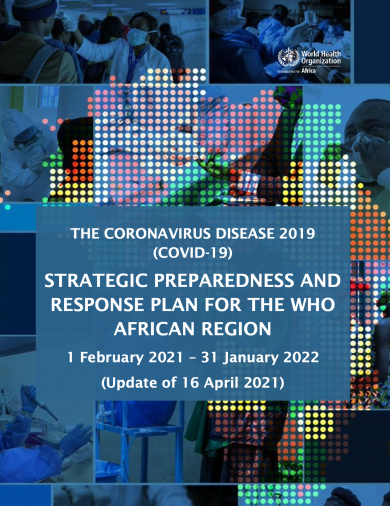
Strategic Response to COVID-19 in the WHO African Region
The Coronavirus Disease 2019 (COVID-19) outbreak was declared a Public Health Emergency of International Concern (PHEIC) on 30th January 2020 and a pandemic on 11th March 2020. The World Health Organisation (WHO) Director General requested all countries to adopt a “Whole-of-Government, Whole- of-Society” approach built around a comprehensive strategy to prevent infections, save lives and minimize the impact1.
In the WHO African Region (AFR), and consistent with the situation globally, all facets of the society – health, security, political, economic and social - continue to be negatively impacted by the pandemic2. In the health sector, the pre-existing fragile health systems were overwhelmed with the surge in cases at the peak of the outbreak. The continuity of essential health services has also been disrupted in many African countries resulting from an imbalance of the demand and supply factors. The most common services affected include routine immunization, facility-based services for non-communicable diseases, antenatal care, family planning and contraception, among others3. The size and evolution of the virus, expanding knowledge on its transmissibility and the countries’ gradual return to the ‘new normal’ signals a reinforcement and sustenance of the efforts to contain the pandemic. Given this context, AFR is engaging in global and regional efforts to support the Member States and partners in improving productivity, efficiency and attaining a sustainable approach to managing a protracted COVID-19 pandemic.


